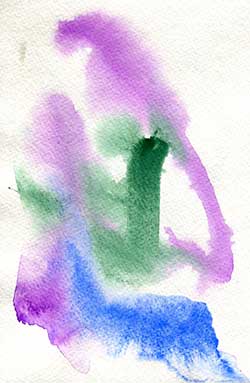 Kind promise: I will surrender patiently.
Kind promise: I will surrender patiently.
The Buddhist proverb says: “when the student is ready, the teacher will appear.”
Moving more deeply into this promise, I might be ready to learn about patience—my Buddhist teacher, Susan Piver, chose it recently as a subject of a meditation lesson.
“Not having any expectations,” she said, paraphrasing her own teacher, Chögyam Trungpa, “we can be infinitely patient.” She went on, speaking for herself, “Not having any expectations rouses a feeling of great spaciousness. Impatience makes us small and feels powerless.”
There was a time in my life that I had a goal of not getting upset. I couldn’t do it. Something would happen, I would feel my pulse start to increase, my breathing get fast, my head feel hot and—wham—I was upset. I learned the rational-emotive psychology theory that your thoughts cause your emotions. I set a subgoal of not thinking upsetting thoughts. I couldn’t do that either. Thoughts, emotions, physical response…They all seem to happen faster than I can stop them.
The expectation of “no upset” gets in my way. Upset happens. I surrender to that. In the next moment, though, upset goes away if I don’t get attached to it. I have to release the expectation that upset means something important. I have to release the idea that, if I am upset, someone is Wrong.
Yesterday, I read about a study that shows that indulging in upset makes things worse. The idea that we need catharsis is wrong. Contrary to the advice I received 15 years ago that, when I felt upset, I should scream into a towel, it turns out its better to get quiet and take deep breaths. (Freud 0, Buddhism 1)
Returning to this moment, I surrender the upset. Returning to this moment, I release expectations. Not having expectations, I am patient.

